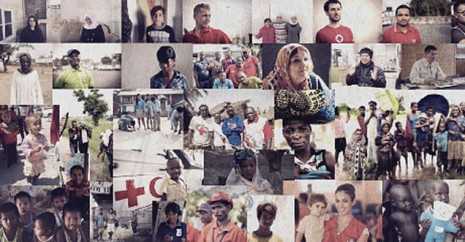NATO pledge to strengthen training on international humanitarian law
Szöveg: honvedelem.hu / nato.int | 2015. december 11. 15:30This week in Geneva, NATO attended for the first time the 32nd International Conference of the Red Cross and Red Crescent, in an observer capacity. The Organization formally pledged to continue a substantive dialogue with the International Committee of the Red Cross (ICRC) to identify areas where training and education provided by NATO on international humanitarian law may be further enhanced.
The human suffering of today’s conflicts
“We have entered an era in which armed conflicts are greater in complexity and numbers of actors, longer in duration, wider in their regional impact, broader in tactics and weapons used and, above all, more atrocious in the human suffering they cause," stated ICRC President Peter Maurer in his opening address.
The Conference, which meets every four years, is the supreme deliberative body of the Red Cross and Red Crescent. It “debates humanitarian issues and adopts resolutions that guide its participants in carrying out humanitarian activities. It promotes respect for, and contributes to the development of international humanitarian law."
Participants include over 180 Red Cross and Red Crescent national societies and more than 190 states that are party to the Geneva Conventions; observers from other humanitarian organisations; and international organisations.

NATO’s dialogue with ICRC
The pledge demonstrates the Alliance’s overarching support for the principles of international humanitarian law and its commitment to engage with the international community to promote these principles in practice. NATO is committed to including measures to protect civilians affected by armed conflict in the Alliance’s military doctrine, education, training, planning, exercises and conduct of operations.
It is the latest example of the positive trend in the dialogue between NATO and the ICRC, which has gained momentum since the signing of an updated Memorandum of Understanding between ICRC, Allied Command Operations and Allied Command Transformation in June 2012. That memorandum foresees a deepening of such dialogue on humanitarian issues in operations, training and exercises as well as on lessons learned.
NATO’s relations with the ICRC encompass staff-level engagements and regular exchanges between the NATO Secretary General and the ICRC President.